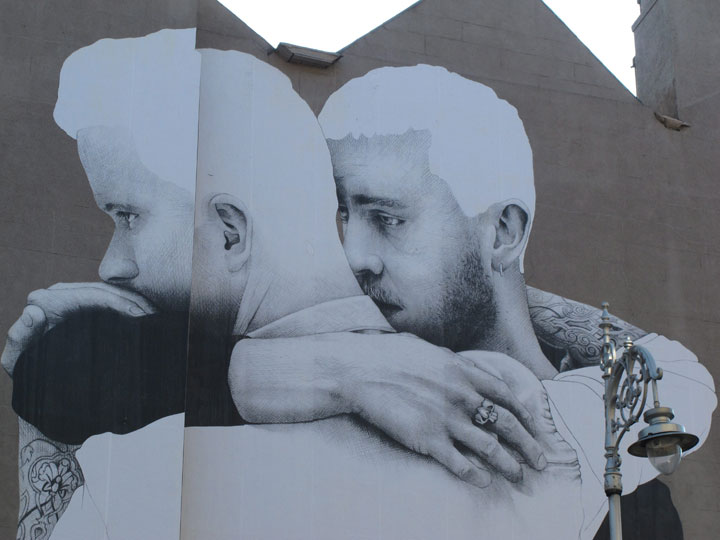DUBLIN — Prime Minister Enda Kenny is urging Ireland’s voters to support the legalization of gay marriage in a referendum that pits the power of the Catholic Church against his secular-minded government.

Speaking on the eve of Friday’s nationwide vote, Kenny said Ireland could “create history” by becoming the first nation to cast a popular vote for gay marriage.
Kenny said voters’ approval of a constitutional amendment to legalize gay marriage would represent an Irish civil rights breakthrough “that for generations gay people could never imagine.”
READ MORE: Murals promoting same-sex marriage in Ireland get worldwide attention
“The ‘yes’ will obliterate, publicly, the remaining barriers of prejudice or the irrational fear of the ‘them’ and ‘us’ in this regard,” said Kenny, a devout Catholic who nonetheless during his four years in power has pushed to reduce the church’s influence on policy and state services.
Eight opinion polls taken since the campaign opened in March suggest that the “yes” campaign should win. Kenny’s government is holding a referendum because it’s considered legally necessary to add an explicit amendment to the country’s 1937 constitution before lawmakers can pass the relevant legislation.
All political parties and most lawmakers are on the “yes” side. That lopsided reality, common in Irish referendums, has rebounded in previous contests when some voters, confused by the issue at hand or alienated from the political establishment, voted “no” in protest.
READ MORE: Colin Farrell makes impassioned plea for marriage equality in Ireland
Catholic leaders and conservative pressure groups are arguing that legalization could produce surprising repercussions in Irish courts that could undermine traditional marriages.
Dublin Archbishop Diarmuid Martin, the Catholic Church’s most experienced diplomat in Ireland, said the government could not guarantee the legal or social consequences of a “yes” vote.
“Marriage isn’t just about two people falling in love. It’s a much more complex and a much more important part of the way our society is built up,” Martin said.
“My voting ‘no’ is not a vote against gay and lesbian people. It’s against changing the definition of marriage,” Martin said.



Comments